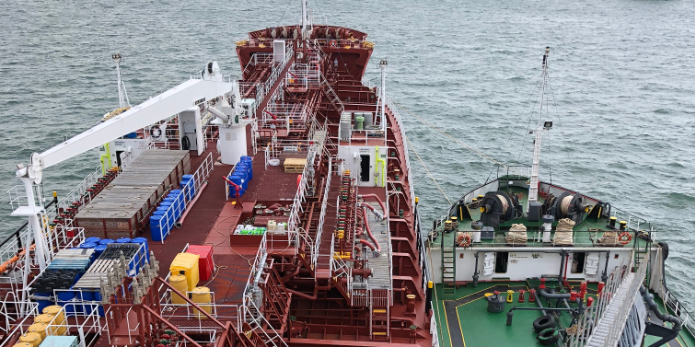AMSA issued a marine notice to provide information to ship owners and operators on the application of the International Convention on Civil Liability for Bunker Oil Pollution Damage, 2001 (‘the Bunkers Convention‘) in Australia.
The Bunkers Convention is implemented in Australia through the Protection of the Sea (Civil Liability for Bunker Oil Pollution Damage) Act 2008. Ships of more than 1,000 gross tonnage arriving at or leaving an Australian port or offshore facility other than an oil tanker carrying more than 2,000 tons of oil are required to carry an appropriate government-issued insurance certificate (‘bunkers certificate’) of the kind set out within section 15 of the Act 2008.
Australian and foreign-registered ships
Applicable Australian registered ships are required to have a bunkers certificate issued by AMSA. All applicable foreign-registered vessels to which the Bunkers Convention applies entering Australian ports or offshore facilities need a bunkers certificate issued by either:
- their flag State, if their flag State is a party to the Bunkers Convention; or,
- any party to the Bunkers Convention, if their flag State is not a party.
As indicated above, bunkers certificates may only be issued by the administration of a country that is a party to the Bunkers Convention. There are currently 100 parties to the Bunkers Convention, with details available on the IMO website, (“Ratifications by State”).
Owners and operators of ships flying the flag of a non-party to the Bunkers Convention should obtain a bunkers certificate from one of the countries already party to the Convention. This certificate can be issued by AMSA if a certificate has not already been obtained from another party.
Applications
Shipowners and operators of both Australian and foreign-flagged vessels applying for a bunkers certificate from AMSA should use the application form on the AMSA website. The form will need to be accompanied by a P&I Club Blue Card or similar financial guarantee. A fee applies to the issuing of an initial certificate and for renewal certificates. Further details, including fee amounts, are set out in the application form.
Please allow 20 business days for the processing of applications and issuing of certificates as per AMSA’s Service Charter. Note that additional assessment criteria apply when obtaining a Blue Card from a P&I Club that is not a member of the International Group of P&I Clubs. Refer to IMO Circular Letter 3464 which can be obtained from the IMO website.
Certificates are issued based on the commencement and expiry dates stipulated on the Blue Card or financial guarantee for a period of up to 12 months and are valid from the date they are issued by AMSA.
Oil tankers
The IMO Legal Committee has recognized that the Civil Liability Convention has a narrow definition of oil, and that it is possible for an oil tanker to also carry oil not covered by the Civil Liability Convention definition (for example, non-persistent oil or lubricating oil used in the operation of the ship, as opposed to oil carried as cargo). It is also difficult in practical terms for maritime administrations to know, in every case and at all times, what commercial use may be made of a particular tanker. As a consequence, and to avoid any possibility of encountering problems during PSC inspections in both domestic and foreign ports, Australia is aligning its position to that adopted internationally by the IMO.
Therefore, Australia expects the carriage of a bunkers certificate by all oil tankers that carry persistent oil as cargo (for example, crude oil, fuel oil, heavy diesel oil and lubricating oil) in addition to the appropriate certificate issued in accordance with the Civil Liability Convention, whether or not the ship is actually carrying oil as cargo.
Australia also expects that bunkers certificates are carried by all oil tankers that are carrying, or may potentially carry, nonpersistent oils as cargo (for example, automotive or aviation engine fuels).
To avoid any confusion, owners and operators of foreign-flagged oil tankers should also carry both a certificate issued under the Bunkers Convention and a certificate issued under the Civil Liability Convention from an appropriate maritime administration when visiting a port or offshore facility in Australia.
Penalties
If a ship to which the Bunkers Convention applies enters or leaves an Australian port or offshore facility and does not carry a valid bunkers certificate, the owner or master of the ship may be subject to substantial penalties – up to AUD$555,000 for the owner and AUD$111,000 for the master.
A penalty of AUD$4,440 applies to the master of a ship who fails to produce a valid bunkers certificate if requested to do so by an officer of the Australian Border Force or AMSA. Officers may also detain a ship in port if the officer has reasonable grounds to believe that there is not an appropriate bunkers certificate in force for the ship.




























































